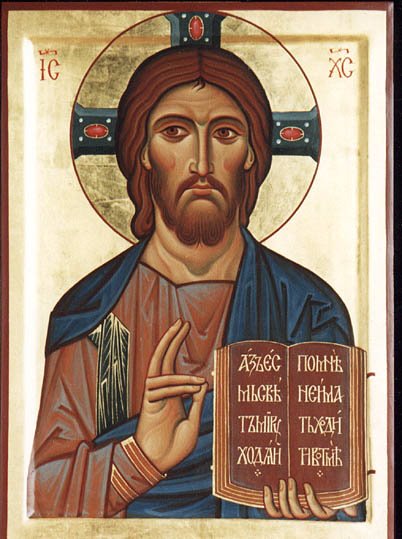Matthew 8:23-27; Romans 13:8-10; Jonah 1:1-17
In the Name of the Father and of the + Son and of the Holy Spirit.
Look up at the ceiling of this church. Its mighty beams and rafters supporting a tremendous weight, the protuberance of wood and iron braces, its great height and severe pitch – is it not reminiscent, in some way, of a great wooden ship, perhaps turned upside down? This is not a coincidence. Even in churches of a more modern structure, such as this one, the great architectural tradition of church buildings emulating ships is still carried through. For, the Church is a great naval vessel. She is a frigate sailing upon oft turbulent seas. She is a fishing boat catching men alive unto salvation through God’s creative Word and Sacraments. She is an ark in which God preserves His elect from the raging destruction of sin and death.
For, the sea is a fierce and pitiless force of nature, giving and taking life indiscriminately. In the Scriptures, the sea is at once the provider of food and a means for commerce, but it is also a symbol for the abyss of hell where leviathan and other demons dwell. In the case of Jonah, it was the LORD who hurled a great wind upon the sea causing a mighty tempest so that the ship threatened to break up. In the Gospel, the storm seemingly arose on the sea of purely arbitrary and natural causes. But, in both cases, the LORD was in control, whether actively or passively, using the elements for good in accordance with His wisdom. And, so it is that the same water which floated the ark and saved Noah and his family also drowned those outside in its furious torrents. And, so too, the waters of Holy Baptism both kill and make alive as the man of sin drowns and dies and the new man is raised to life.
Whether He commands the tempests or allows them to go their natural course, the LORD, the God of heaven, who made the sea and the dry land, is in control of His creation. The LORD hurled a great wind upon the sea to strike terror in the hearts of the mariners that they would cry out to their gods and rouse sleeping Jonah to cry out to his God in repentance. The LORD allowed a great storm to arise upon the sea that the disciples would cry out in faith to their slumbering Lord. At their cry, Jesus awoke and demonstrated His authority over creation, rebuking the winds and the sea and bringing a great calm, and the disciples marveled, saying, “What sort of man is this, that even winds and sea obey him?”
What sort of man, indeed? He is none other than the LORD, the God of heaven, who made the sea and the dry land, in human flesh. Jesus rebuked the winds and the sea. He spoke to them as one speaks to annoying servants. And, though He slept, the Lord was in command. He slept to illustrate the holy peace and confidence that comes from faith. He slept to illicit a cry of faith from His disciples, “Save us, Lord; we are perishing.” And He said to them, “Why are you afraid, O you of little faith?”
When the Lord is in the boat, there is nothing to fear. When the storms of life threaten to overtake you, you must know that the Lord is in control and that, whether awake or asleep, He is in the boat with you. He is the love of God incarnate and the fulfilling of the Law. Through faith in Him, nothing can harm you. Though you often may have but a little faith, faith receives Him who is sufficient for all your needs of body and soul.
In life you pass through many storms. Some arise about you seemingly spontaneously. Others the Lord hurls at you directly. But, there is nothing that is outside of the Lord’s command. Sometimes He calms the storm and removes it from you after a time of testing. Other times He lets the storm seethe and, like Jonah, casts you into the midst of the raging sea that you might be swallowed up and put to death in repentance, before He enlivens you again and brings you back up to shore. And there are some storms that are never removed, but rather are to be endured until death, yet endured in faith. Because where there is perfect trust in the Lord, there is also perfect peace, no matter what storm may be pounding upon your little boat. Jesus, who is the Almighty God, who exercises authority and power over wind and wave, is also your Lord who loves you and has redeemed you from all sins, from the power of the devil and even from death itself.
This He proves to you in His Holy Word, and gives to you here in the ship of His Holy Church, a ship where He is present through the preaching of His Word and in the Holy Sacraments. And with these He answers your prayers for strength and healing and for help. For here He gives you His grace which will strengthen your faith even in the midst of life’s relentless storms, and will bring you through them into a safe harbor and life everlasting.
In the + Name of Jesus. Amen.

